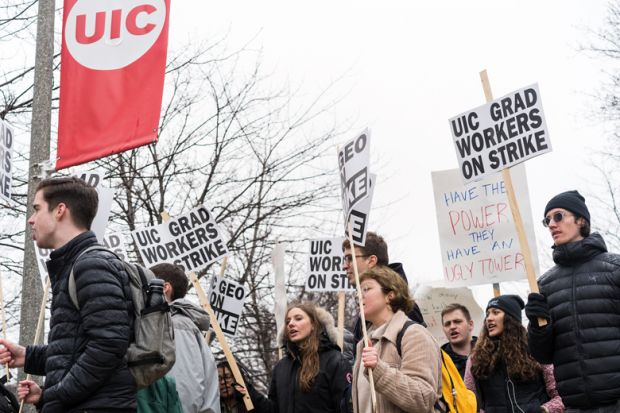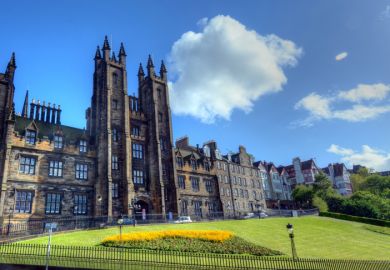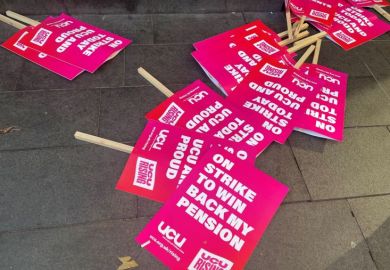Labour strife in US higher education, already escalating in recent years, could soon worsen with new government plans to hinder unionisation among graduate teaching assistants at private institutions.
Despite escalating tuition costs and record student debt levels, US postgraduates who serve as tutors on many US campuses are not receiving what experts consider even the minimum basic wage necessary to cover costs of living.
It’s a longstanding complaint that is now contributing to a rise in strike activity. Last year alone, US universities saw 13 strikes, well above the averages of previous years, according to a research centre at New York’s Hunter College. Four of the 13 involved graduate teaching assistants.
Pushback for the workers has involved some of the country’s best universities. They include Harvard, Yale, Princeton, Columbia, Cornell, Brown and Stanford universities, all of which have argued at some point in their bargaining approach that graduate students are not eligible to organise as workers.
Now an additional irritant is coming from Washington, where the National Labor Relations Board – a federal agency meant to guard against unfair labour practices – is making plans under Trump administration control to flatly forbid union rights among graduate-student teachers.
The move centres on the question of whether such teachers are in essence students or deserve the traditional legal protections of workers. The NLRB largely decides that for private colleges, as individual state governments often adjudicate such questions for their public universities.
In the past, the NLRB’s case-by-case answers to graduate student unions at private colleges have reflected the administration in the White House, given its ability to appoint board members.
Recognising that, some graduate student unions have sidestepped the NLRB by directly asking their university to consider recognition. And some of those – Cornell, New York, Georgetown and Brown universities – have granted it.
That hasn’t been a perfect solution, especially at Cornell, where graduate student organisers didn’t get enough votes among their own colleagues to move ahead with the idea.
And now, with no graduate student unions asking for federal recognition, the NLRB has announced plans to undertake the arduous process of rewriting federal regulations to apply its perspective on a more permanent basis.
“The NLRB realises that the cases are not coming to them,” said Risa Lieberwitz, professor of labour and employment law at Cornell University who serves as general counsel at the American Association of University Professors. “And so one could then reasonably surmise that the NLRB is reaching out and finding a way to address the issue in rulemaking rather than waiting for a case to come to them.”
Graduate students still could wage strikes without any federal recognition, said William Herbert, executive director of the Hunter College research group, the National Center for the Study of Collective Bargaining in Higher Education and the Professions.
“I'm not saying it’s nirvana” to have federal recognition, Mr Herbert said, “but it does have rules that the sides have to play by”, potentially protecting workers from retaliatory actions in contentious disputes.
One of the fiercest fights is at the University of Chicago, where students voted by a two-to-one majority to unionise and then went on strike this month, complaining about pay rates, poor healthcare coverage, unaffordable childcare and more.
The university has said it respects unions, but regards them as inappropriate for students. “Unionisation would fundamentally alter the decentralised, faculty-led approach to graduate education that has long been a hallmark of the University of Chicago,” the provost, Daniel Diermeier, said in a campus-wide letter. “Graduate students are students, first and foremost.”
Register to continue
Why register?
- Registration is free and only takes a moment
- Once registered, you can read 3 articles a month
- Sign up for our newsletter
Subscribe
Or subscribe for unlimited access to:
- Unlimited access to news, views, insights & reviews
- Digital editions
- Digital access to THE’s university and college rankings analysis
Already registered or a current subscriber? Login








